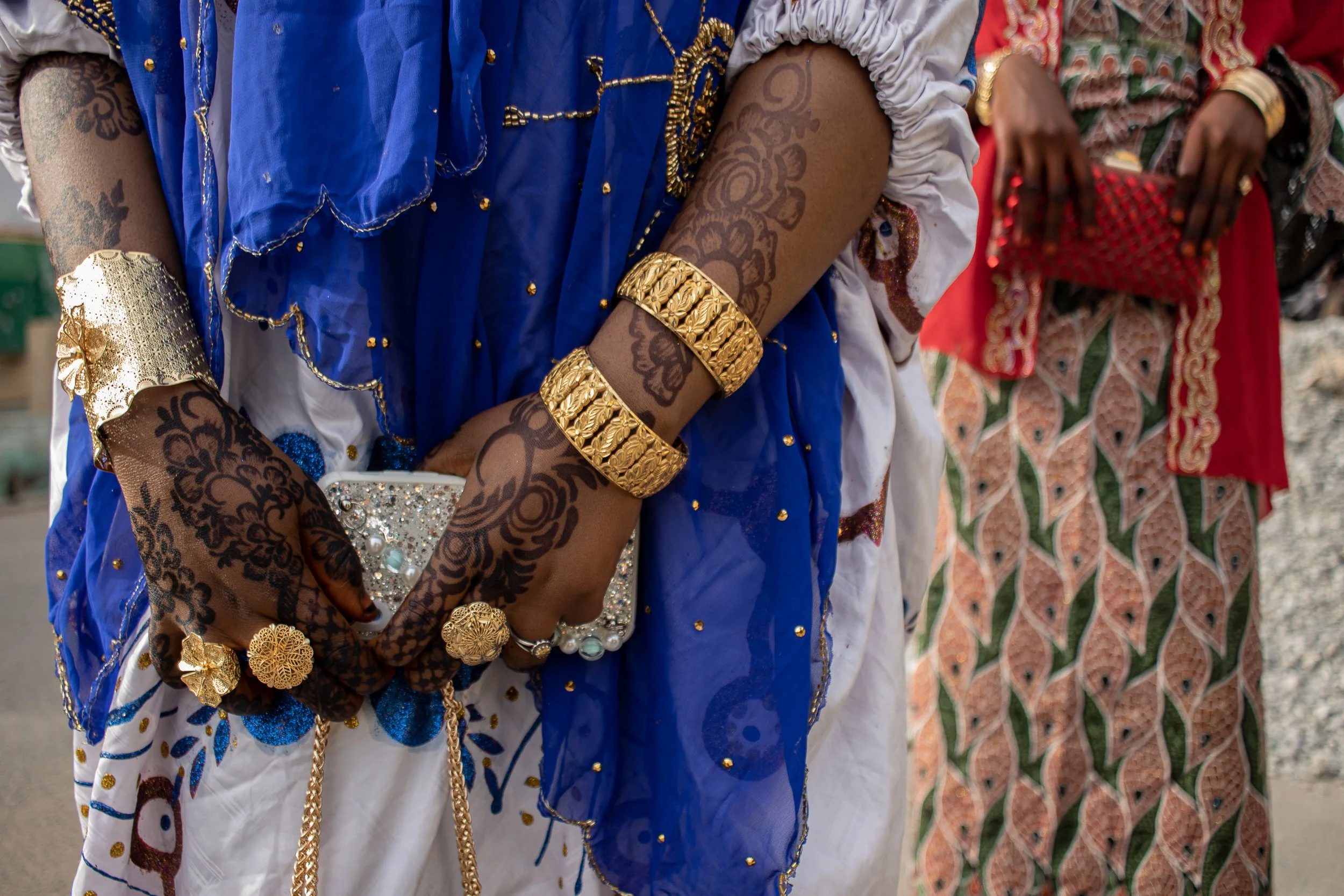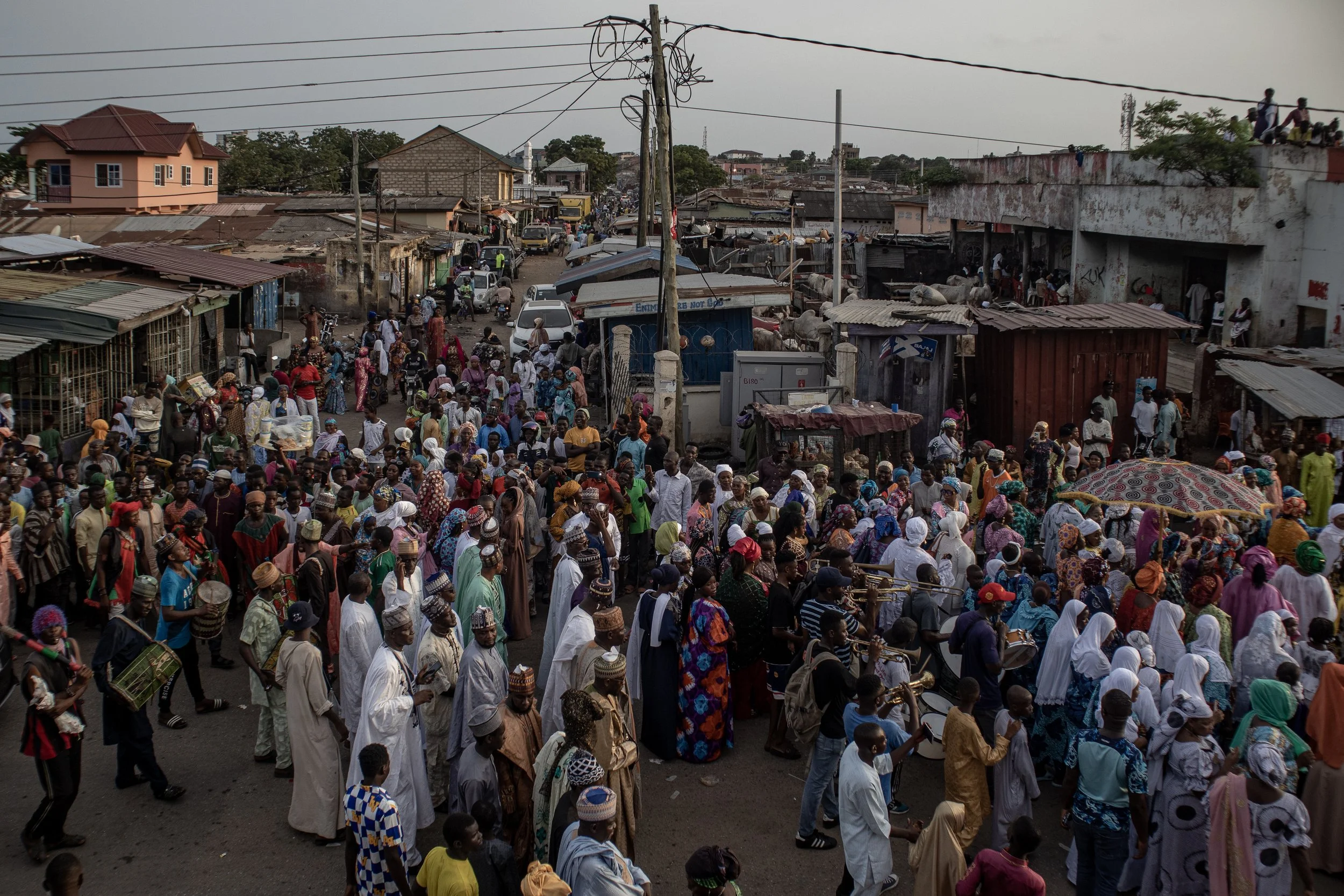Oyewole Lawal: Durbar Festival
© Oyewole Lawal
Written by Trip Avis
Festivals are more than social gatherings—they crown a time of celebration, reverence, honor, and tradition. Through brightly-colored costuming, music, dance, and other traditional and ceremonial practices, we bridge the past and present with emotional immediacy. Across the world and in all religions and cultures, communities set aside time each year to honor their beliefs, way of life, ancestors, and posterity. Nigerian photographer Oyewole Lawal captures the potency of this mutual fervor and excitement through his images of the Durbar Festival in Accra, Ghana. The annual festival is integral to Hausa culture in Northern Nigeria; the events are largely influenced by their equestrian roots. For Hausa migrants in Ghana, the Durbar Festival bridges another gap—between their new home and old. Lawal reflects, “[...] embracing their cultural and traditions [...] is not just a celebration, but a way of preserving their identity. They believe holding onto their cultural roots is essential for maintaining their sense of self in a new home.”
© Oyewole Lawal
For Lawal, his photography goes beyond aesthetic sensibilities, influenced by his ethos of exploring societal narratives: “It is about storytelling [...] capturing the heart of the moment by painting the path of light and shapes [...]” The Durbar Festival provides him with a vibrant easel with its richly patterned clothing, gilded jewelry, henna tattoos, and other bodily ornamentation. It is an opportunity for everyone to be their most vibrant selves. One photograph depicts a young woman’s hands adorned with intricate gold rings and bracelets—henna snakes up her fingers and arms, rendered in floral and checkerboard detailing. The opulence of her festival costuming signifies the importance of the Durbar Festival in the lives of the Hausa people. The deep colors, rich patterns, and gleaming metal excite the eye and convey the enthusiasm of the event. She dresses to honor her culture—it is a time to dress to impress.
© Oyewole Lawal
Horses play a significant role in the Durbar Festival. These magnificent beasts are central to Hausa culture and are thus a centerpiece of the annual celebration. The Hausa people adorn their equine friends with equally rich costumes, befitting their stature within the community. While the Hausa no longer require them for warfare, reverence for the horses remains steadfast; their numbers represent the scope and influence of noble families. One of Lawal’s images depicts a horseback man rising regally above the crowds of smiling, brightly dressed festivalgoers. He dons a traditional Aso oke hat and a robin’s egg blue cape. The gold filigree on his cape matches the gilded pattern on the horse’s costume. It is an instance of sartorial equality between man and animal. One can sense the connection between the two living beings as they take in the festival’s energy. It is a relationship that traverses history, all the way back to the early days of the Hawan Sallah (the native Hausa people’s name for the festival).
Oyewole Lawal
Oyewole Lawal’s photographic storytelling welcomes viewers into this heady and vibrant experience. One can feel the movement and vigor in each image. We walk the streets of Accra with the Hausa people, sharing their revels and communal spirit.
© Oyewole Lawal












